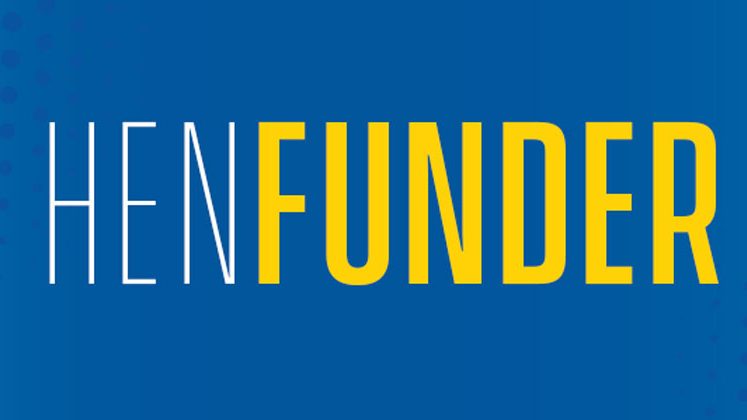
Category: Philanthropy

Helping Through Innovation
The University of Delaware is well known for its legacy of innovation and interdisciplinary collaboration to find solutions to today’s and tomorrow’s challenges. Amid the ongoing crisis of the coronavirus pandemic, that sense of purpose has not slowed but sped up, with many asking, “What can I do to help?”
For Douglas White, manager of research computing at the Ocean Information Center (OCEANIC) at the Hugh R. Sharp campus in Lewes (pictured above), his transition to working remotely led him to turn his home office into a makerspace that would help his local community.
Inspired by people sewing masks, White utilized his own knowledge to begin using a 3D printer to create facemasks for Beebe Healthcare and first responders in Sussex County. A 3D printer allows the user to speed up the manufacturing process by creating a physical object from a digital model, typically by laying down—or printing—many thin layers of plastic material.
“I'm definitely not somebody to sit around on my hands and let somebody else handle it. I'm used to going out there and doing because there's a need,” said White. “I’ve been following creators around the world who are sharing and experimenting ways to produce and improve protective equipment. There’s a lot of innovation going on out there and we're making a better mask every iteration.”
After starting his project using the existing tools he had, White experimented with changing the design to make a mask that would be more comfortable and, therefore, safer. Most commonly, the filament used in a 3D printer creates a hard, rigid surface. However, White could improve his design by creating masks that featured a softer, more flexible edge, improving the fit for the wearer.
But before he could put his idea into action, he needed the equipment that would make his idea possible—a 3D printer with the unique ability to print using two types of filament.
When alumnus Thom Harvey, BE75, learned of the need, he quickly made a gift to help White secure special filament and a new 3D printer. Within a week, White was printing new facemasks to help the local community.
“With this project, you have somebody that's interested in doing it,” Harvey said. “It's way beyond my technological expertise to start doing a project like that, but I can help someone who can do it successfully. As a Delaware business leader, it’s been my focus to keep employees safe during the crisis as we look to a better future. Although a challenging and sad time, I hope that the changes we implement now, and this spirit of innovation, will continue and inspire others across the state and around the country.”
Afterall, he said, UD has a history of spurring change and creating solutions—from the invention of touchscreen technology to the innovations helping children and adults become more mobile. Harvey proudly noted that since his own time as a student on campus the University has continued to evolve to respond to growing industries and needs by exploring the various strengths of educators and researchers across campus.
“Healthcare and health sciences is an area that I'm glad to see the school has become more involved in through creating very innovative solutions to very challenging health issues by marrying engineering and health science technology,” Harvey said. “I'm glad to see it happen and, if in some small way I can help edge that along, that's a great thing too.”
Although White was responding to an immediate need in creating his masks, the experience will also help him in the future as a researcher and educator. His hands-on experience working with the 3D printer is something he can share with UD students—further encouraging the cycle of positive innovation to continue with the next generation of Blue Hens. In addition to using his 3D printer for facemasks, he has also been connecting with scientists through the Folding at Home initiative, which utilizes computer power to advance vaccine development, and brainstorming other ways to help.
“The main thing is experience and being able to be play with these different materials and make others aware of them,” White said. “If I learn something and don't tell anybody, it's worthless.”

